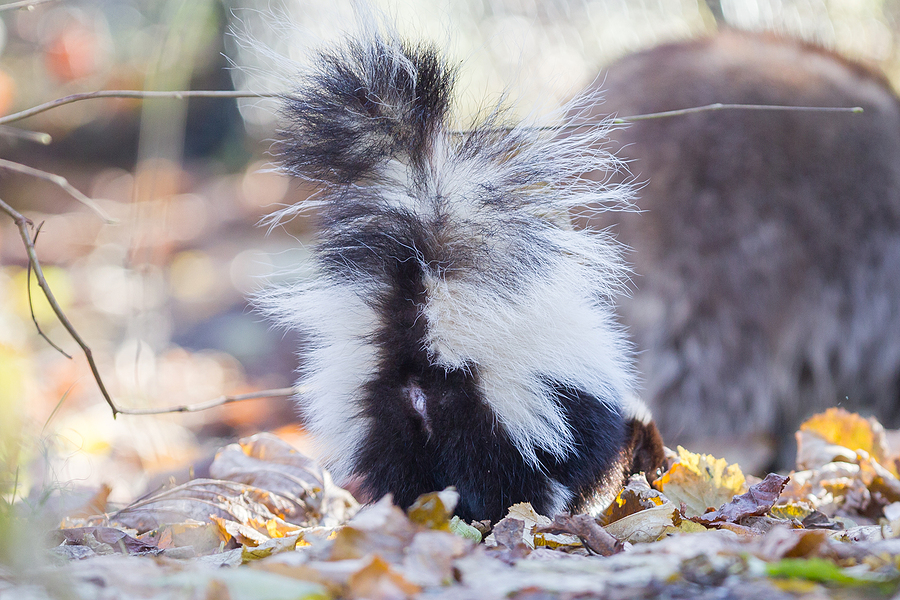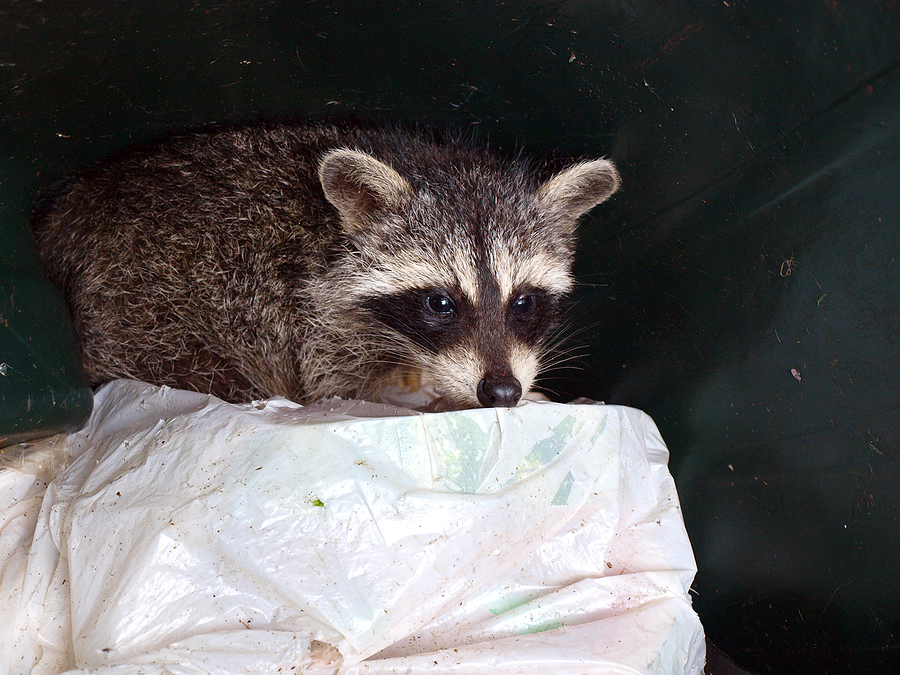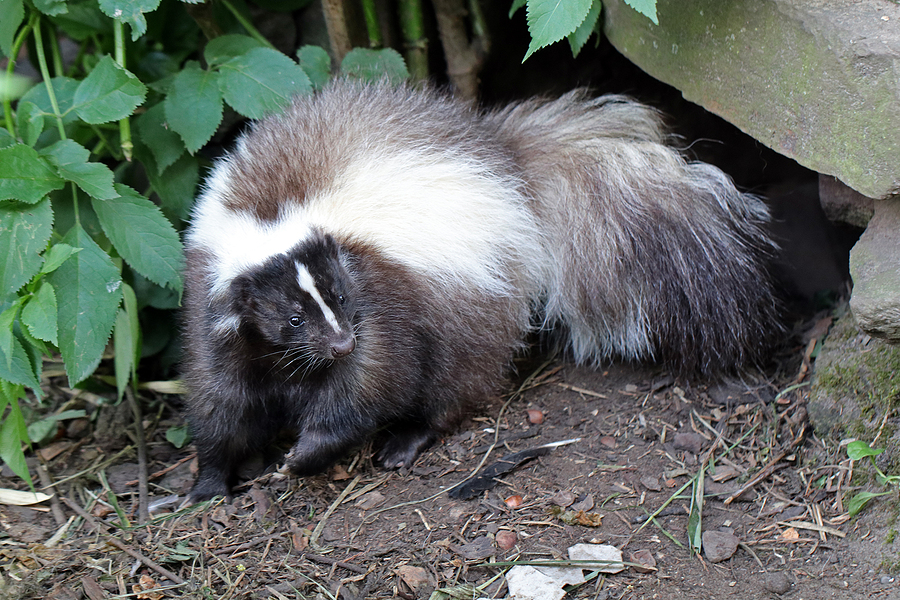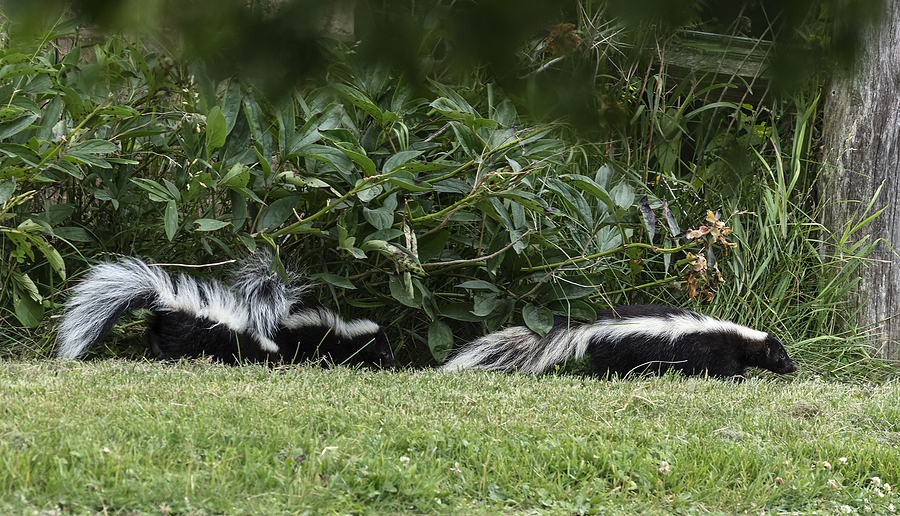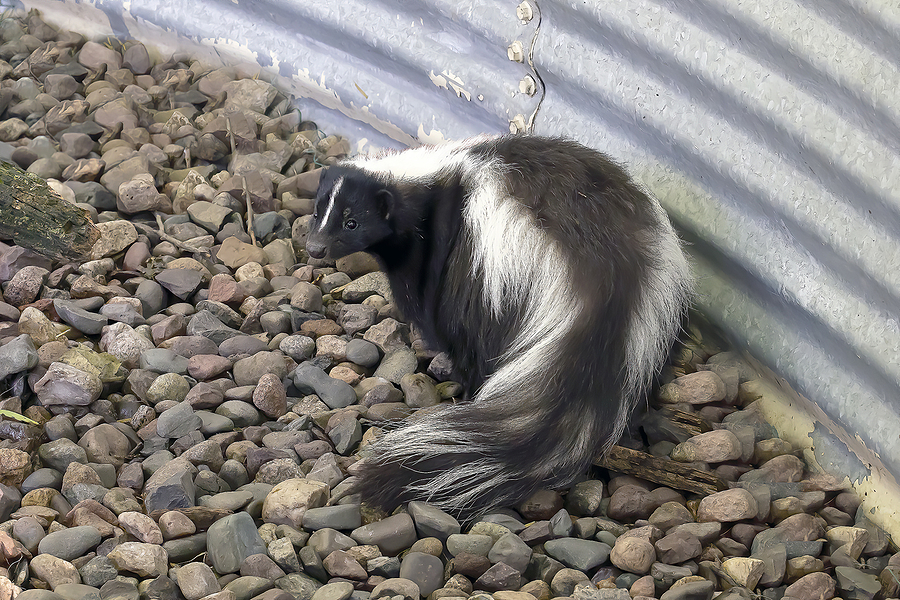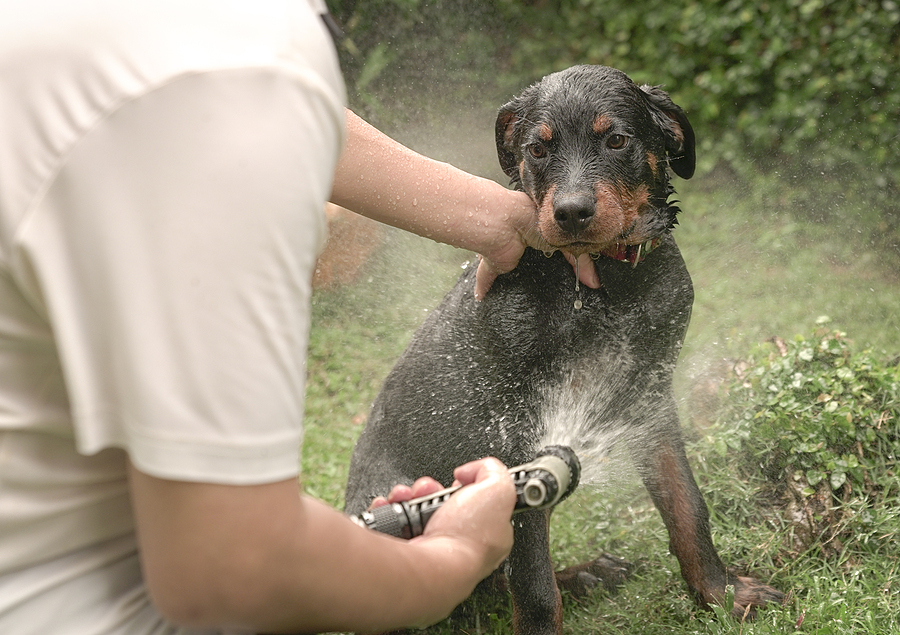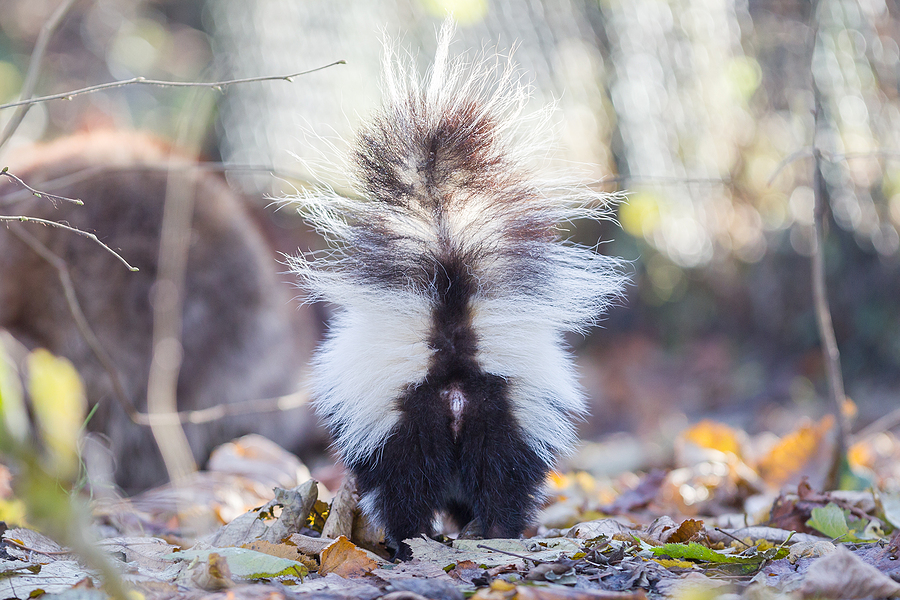Keeping your Tennessee home free from nuisance wildlife can sometimes feel like an uphill battle. Whether it’s raccoons raiding your trash, opossums nesting under your porch, or skunks digging up your lawn, these uninvited guests can cause significant property damage, unsanitary conditions, and even pose health risks.
This guide is here to help you take control, with practical tips on environmental modifications designed to prevent and manage these wildlife issues. By making small yet strategic changes to your property, you can reduce attractants and create a home environment that’s inhospitable to raccoons, opossums, skunks, and other nuisance animals.

Understanding Nuisance Wildlife in Tennessee
Before we explore the solutions, it’s essential to understand the animals causing the trouble and the problems they bring.
Raccoons
Known for their curiosity and dexterity, raccoons are infamous for raiding garbage cans, damaging gardens, and breaking into attics. They can also carry diseases such as rabies and leptospirosis, posing risks to both humans and pets.
Opossums
Opossums often take shelter in sheds, under porches, or in crawl spaces. These nocturnal animals create messes, emit unpleasant odors, and may spread fleas and ticks.
Skunks
Skunks are easily identified by their striking black-and-white fur and their unpleasant, persistent spray. They are known to dig up lawns in search of grubs and can create chaos for pets and humans alike.
Groundhogs
Also known as woodchucks, groundhogs are burrowing animals that can cause significant structural damage to buildings and landscaping. They also carry ticks and fleas, which can spread to humans and pets.
Squirrels
While they may seem cute and harmless, squirrels can wreak havoc on your home by chewing through wires and insulation. In large numbers, they can also create messes in attics and crawl spaces.
Birds and Bats
Other common nuisance animals in Tennessee include birds and bats. These creatures can cause damage to homes and transmit diseases such as histoplasmosis (from bat droppings) and salmonellosis (from bird droppings).
Each of these species can cause havoc on your property. That’s why proactive environmental modifications are crucial for wildlife control in Tennessee.
Environmental Modifications for Raccoon Control
Raccoons are clever, opportunistic creatures. To minimize their attraction to your home, consider these practical adjustments:
- Secure Garbage Cans Properly – Raccoons love garbage. Use garbage cans with secure, tight-fitting lids to block their access. For added protection, consider bungee cords or garbage can enclosures.
- Trim Trees and Shrubs – Low-hanging branches can serve as highways for raccoons looking to enter your attic. Trim branches and shrubs, especially those close to roofs, to make access more difficult.
- Eliminate Outdoor Food Sources – Remove any pet food, birdseed, or fallen fruit from your yard. These serve as easy snacks for raccoons.
By reducing food and shelter opportunities, you’ll make your home less appealing to this crafty critter.
Wildlife Control for Opossum Control
Opossums may not be as destructive as raccoons, but their habits can still lead to significant inconvenience. Here’s how to keep them at bay:
- Seal Entry Points – Inspect your home’s foundation, under porches, and in sheds for gaps or openings. Seal these areas with durable materials like hardware cloth or metal sheeting to prevent opossums from settling in.
- Modify Their Habitat – Opossums prefer dark, cluttered spaces. Keep areas around your home tidy, eliminating wood piles, brush piles, and yard debris that might give them cover.
- Use Animal Repellents – Apply non-toxic repellents in areas where opossum activity is noticeable. Repellents can discourage them from returning to those spots.
With these methods, you’ll significantly reduce the likelihood of opossums making themselves at home under your roof.
Skunk Control Methods
Skunks are not only known for their potent odor but also for digging up lawns. Luckily, you can take steps to protect your property.
- Fence Your Garden or Yard – Install a solid fence that extends several inches below ground to stop skunks from digging underneath. This can protect both your lawn and any garden beds.
- Deploy Motion-Activated Deterrents – Skunks are easily startled by lights or sudden movements. Motion-activated lights or sprinklers can scare skunks away from your property, preventing them from settling nearby.
- Clear Grub Infestations – If skunks are targeting your lawn, it might be due to grubs. Treating your lawn for grubs can remove this food source and deter skunks from foraging.
General Wildlife Abatement and Animal-Proofing Approaches
Once you’ve addressed the specific animals, implementing these general wildlife deterrents can strengthen your home’s defenses against uninvited guests.
- Clear Fallen Fruit and Yard Debris – Food is often the biggest draw for nuisance wildlife. Rigorously clean up fallen fruit, debris, and scraps from your yard to eliminate easy meals.
- Conduct Regular Property Inspections – Regularly inspect your home, porches, and other vulnerable areas to identify and address potential wildlife attractants or entry points.
- Use Non-Toxic Animal Repellents – Consider sprinkling non-toxic repellents in high-traffic wildlife areas. Choose environmentally friendly formulas to minimize harm to local ecosystems.
- Remove Water Sources – Standing water, pet water dishes, or leaky hoses can attract wildlife. Keep your outdoors dry to prevent it from becoming a hangout spot for animals.
- Try a Little Noise – A creative approach to deter wildlife is to set up a talk radio near areas of high activity—unfamiliar human sounds can make animals think twice about sticking around.
Why it’s Best to Call in the Professionals
Although environmental modifications can do wonders to deter nuisance wildlife, sometimes a more hands-on approach is necessary. Professional wildlife removal services in Nashville can safely and humanely remove unwanted animals from your property while preventing future intrusions.
If you’re dealing with relentless raccoons, opossums, or skunks, contact us today for a fast, effective wildlife removal solution personalized for Tennessee homeowners.
Get Professional Wildlife Control Services Now
Key Takeaways
Taking control of nuisance wildlife doesn’t have to be overwhelming. By implementing these environmental modifications, you can protect your property, reduce health risks, and enjoy a more peaceful home.
From securing garbage cans to regular inspections, these simple, humane strategies can make a big difference. And when you need additional support, our professional wildlife control team is just a call away.
Don’t wait until damage is done—start safeguarding your property today!
If you’re dealing with animal problems and need expert assistance, don’t hesitate to reach out to our wildlife removal company. Contact Budget Animal Removal at 615-337-9165 for TWRA licensed and insured Nashville, Tennessee wildlife control for problematic raccoons, opossums, skunks, and more. We serve commercial clients too.
Related Posts:
How to Protect Your House From Nuisance Wildlife in Tennessee
Understanding the Wildlife Health Risks in Your Tennessee Backyard
Dead Animal Removal 101: Protecting Your Property and Health

